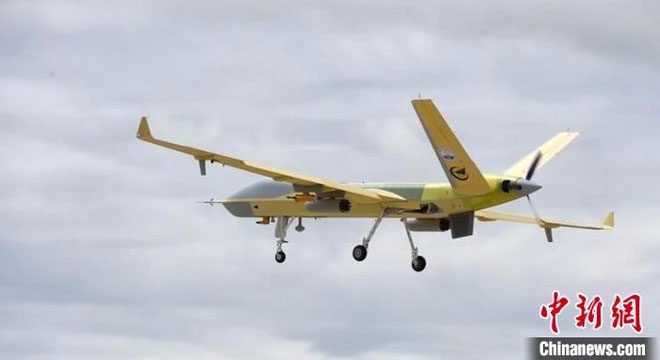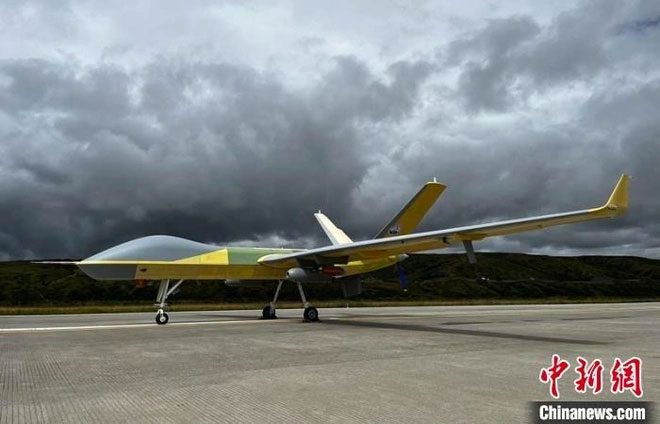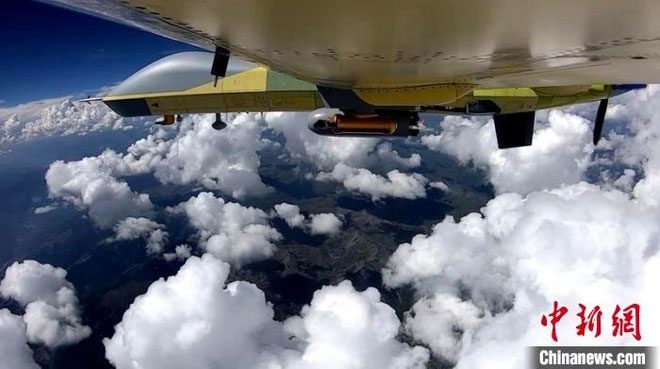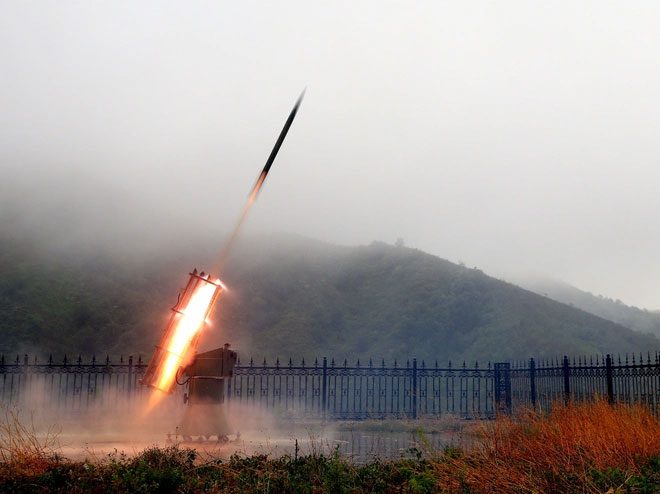To address the prolonged drought, China has deployed massive drones to conduct artificial rainmaking in Sichuan Province.
This decision by the populous nation comes amid the worst heatwave in six decades.
The heatwave primarily affects Sichuan, an important hydropower center in China, causing significant disruptions for tech companies like Apple and Tesla due to power outages.
As a result, The China Meteorological Administration (CMA) has mobilized two large drones to “seed clouds” in the northern and southeastern skies of Sichuan Province. These devices will disperse condensation-inducing chemicals, such as silver iodide, over clouds to generate rain across an area exceeding 6,000 km2 in the province.
After the drones release the seeding chemicals, the clouds will condense and begin to produce rain. The People’s Daily reported that the two large drones used 20 silver iodide rods and flew for four hours to create rain for the Sichuan region.



China has deployed two large drones to disperse rainmaking chemicals. (Photo: People’s Daily).
According to Bloomberg, China has applied this technology to irrigate or cool cities suffering from drought and heat. Rainmaking drones are also utilized to ensure favorable weather for significant events like the Olympics.
Previously, in 2021, the populous nation experimented with rainmaking drones. The Ganlin 1 was the first operational rainmaking drone, helping China address water shortages during the hot season.
This device can operate continuously for 14 hours, covering a flight distance of 5,000 km. Ganlin 1 also has the capability to detect areas needing increased rainfall and humidity.
According to Bloomberg, China is experiencing a severe drought impacting the country’s industrial activities and economic growth. An official from the Sichuan provincial government stated that temperatures in the province have reached record highs not seen in 60 years, with many days exceeding 40 degrees Celsius, leading to increased electricity demand.
The prolonged high temperatures over more than two months have caused major rivers and lakes in the country to gradually dry up and disrupted power supply.
Since early August this year, hydropower plants in Sichuan have reduced their operational capacity by up to 50%, as reported by Caixin. This has forced many provinces in China to request factories to temporarily halt production and cut industrial electricity consumption, impacting major manufacturers, including some partners of Apple and Toyota.
Specifically, according to analyst Ming-Chi Kuo from TF International Securities, the shutdowns could affect assembly plants for iPads, including Foxconn’s facility in Chengdu and Compal’s factory in Chongqing.
Major semiconductor manufacturers like Intel from the U.S. and CATL from China are also facing similar impacts. “Rotating production among partners may mitigate the effects of power outages,” the expert shared.

A cloud-seeding rocket launched in Hubei Province, China. (Photo: Getty Images).
However, he also warned that similar conditions could occur in the coming months, impacting shipments of the iPhone 14 during the peak year-end shopping season.
The positive note is that this year’s drought is not as severe as last year’s, and the area affected by power outages is smaller, according to economist Iris Pang. “Factories have to temporarily halt operations in key cities, which allows the government to manage the situation as the economy shows signs of decline,” the expert stated.



















































